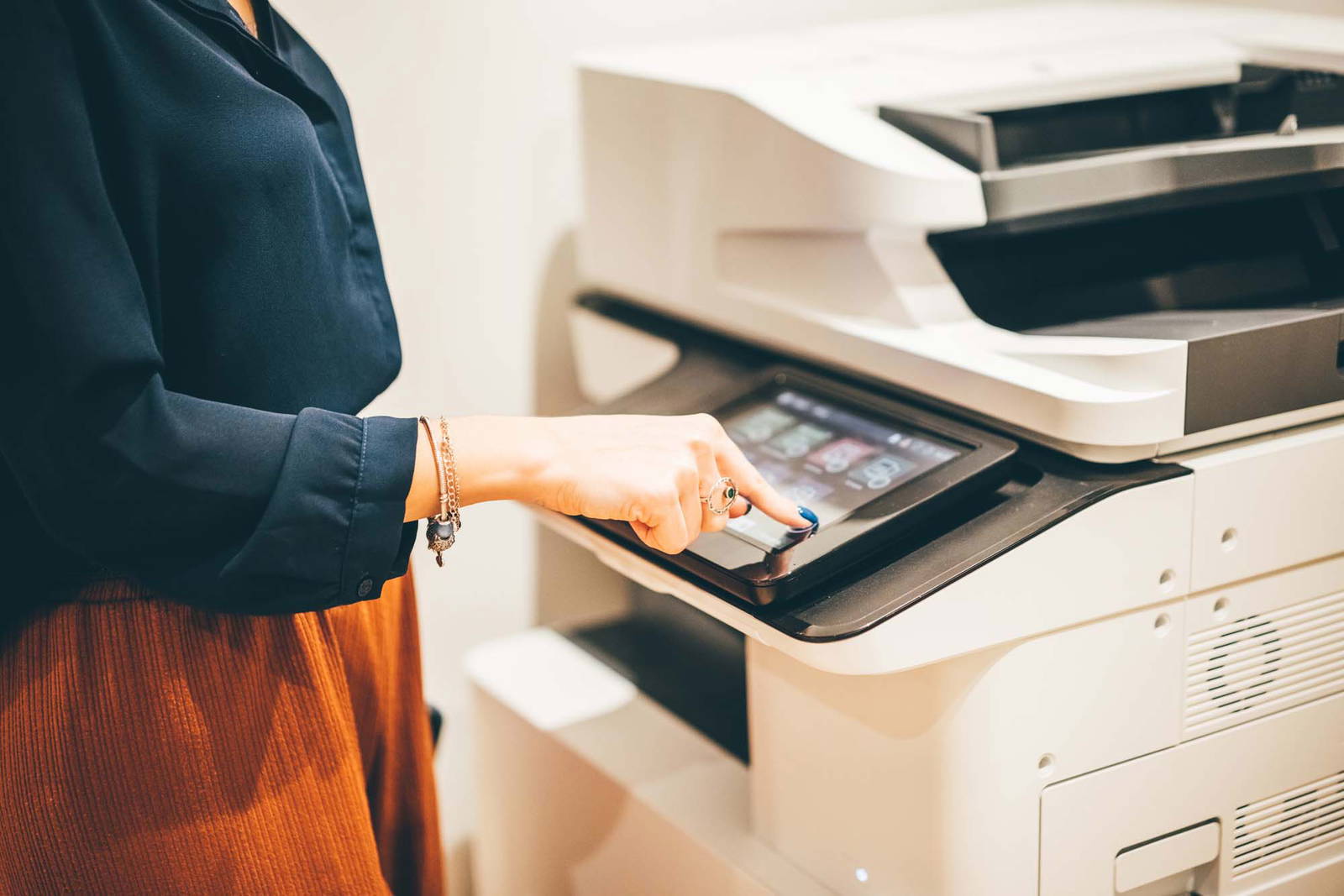In the Architectural, Engineering, and Construction industries, information is power. From detailed blueprints to proprietary designs, sensitive data drives the success of projects. However, as technological advancements integrate more digital solutions into workflows, the risk of cyber threats grows exponentially. While many organizations prioritize software and network security, one often-overlooked vulnerability lies within their printers.
Printer security is critical in protecting the confidentiality, integrity, and availability of A/E/C data. Here’s why it matters and how to safeguard your business.

Why Printer Security is Crucial in the A/E/C Industry
1. Sensitive Data Transmission
Printers in the A/E/C industry handle more than routine documents—they process architectural plans, legal contracts, and technical drawings. These files often contain intellectual property, client information, and project specifications, making them a prime target for cybercriminals. If compromised, these assets could lead to costly project delays, loss of competitive advantage, or breaches of client trust.
2. Network Access Points
Modern printers are no longer standalone devices; they are networked endpoints. This connectivity allows hackers to infiltrate your network through vulnerabilities in printer firmware or unprotected access points, potentially compromising your entire system.
3. Compliance Requirements
The A/E/C sector often deals with regulatory compliance, particularly when working on government contracts or large-scale commercial projects. Failure to secure printers could result in non-compliance, leading to fines or disqualification from future bids.
4. Insider Threats
Not all security risks come from external sources. Unauthorized access to print jobs or stored documents can lead to internal data leaks. Ensuring proper access control mitigates these risks.


Best Practices for Printer Security

1. Use Secure Printing Protocols
Implement secure printing solutions such as pull-printing, which requires authentication at the device before a document is printed. This ensures sensitive materials are not left unattended.
2. Regularly Update Firmware
Printer manufacturers often release firmware updates to address vulnerabilities. Regularly updating your printer’s software ensures it remains protected against emerging threats.
3. Encrypt Data
Ensure data being sent to and from printers is encrypted. This step safeguards sensitive information, even if intercepted during transmission.
4. Restrict Access
Limit printer access to authorized personnel only. Use PIN codes, ID badges, or biometric authentication to prevent unauthorized use.
5. Monitor Printer Usage
Implement monitoring tools that track printer activity. This visibility can detect unusual behavior, such as unauthorized print jobs or attempts to access secure files.
6. Partner with Secure Solutions Providers
Work with trusted providers who understand the unique security challenges of the A/E/C industry. Managed Print Services (Xerox) and PrintWise (HP) can help monitor, maintain, and secure your printing environment.

Protecting the Foundation of Your Business
In the ever-evolving A/E/C industries, productivity and confidentiality are the backbone of success. One printer security breach is all it takes to disrupt your momentum, expose critical data, and shake the trust you’ve built. Securing your printing infrastructure isn’t optional—it’s essential.
Your reputation is your currency. Partner with BPI Color to safeguard your projects and protect what matters most. In a world where trust fuels progress, the smartest move is the one that ensures your future.







